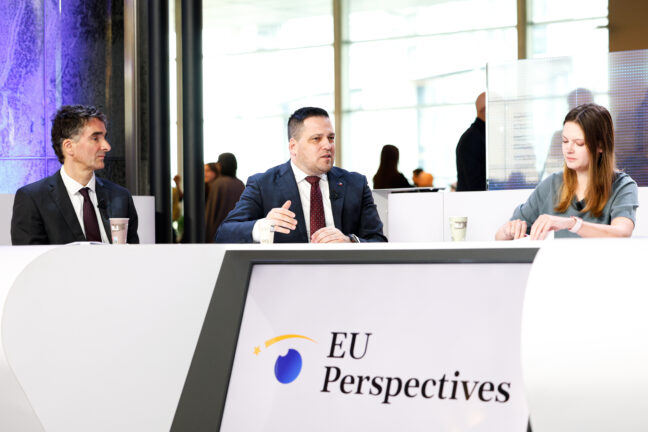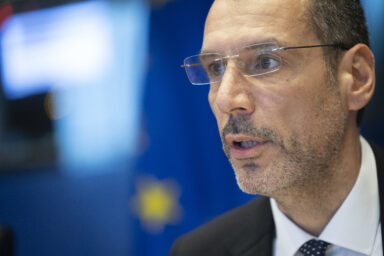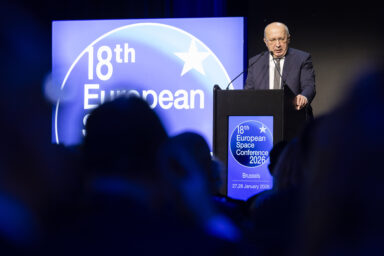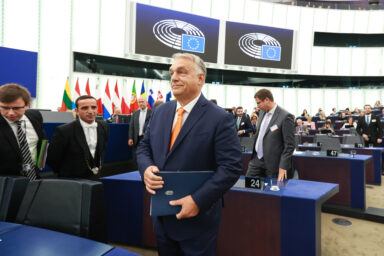The overstretched EU budget could profit from more incentives to member states tied to their actual policies on the ground rather than vague promises of far-reaching reforms, Zsolt Darvas of the Bruegel think-tank tells EU Perspectives podcast.
Much of the current Brussels buzz centers on the question of how to fill the EU coffers, eerily empty in the face of the ambitious projects laid out by the European Commission in late January. Zsolt Darvas, Senior Fellow at the prominent Brussels-based Bruegel think-tank, tackles the matter in question from a slightly different angle in an EU Perspectives debate. He is joined by MEP Tomáš Zdechovský (EPP), who has spent many years in the European Parliament focusing on the EU budget, as well as two experts: the Financial Times’ Andrew Bounds and Melchior Szczepanik, head of the Brussels office of the Polish Institute of International Affairs.
Unlike most people invested in the process of dissecting the EU budgets, Mr Darvas does not speak of outright budgets cuts or raising more money from member states directly. Instead, he proposes to introduce more measures aimed at making European money work more efficiently.
Net-balance culture
“Many member states, especially those who are net contributors, typically look at how much they pay in and how much they get back,” the ex-Deputy Head of Hungarian central bank research unit, said during the EU Perspectives podcast on 29 January. “This is sometimes called the net-balance culture and the main driver of this is that most of the contributions are based on the size of the economy. That means larger countries like Germany and France pay more than small countries like Cyprus or Estonia.”
You might be interested
This is a rational attitude, but can be misleading, Mr Darvas claims. A better way is available, which the EU is just beginning to apply. “Look at the recently introduced plastic waste levy. For the current annual budget a levy was introduced for countries which are not recycling a large share of their plastic waste. Then they have to pay more – but the countries may not look at it the way ‘look I have to pay more because my taxpayers’ money is going to the citizens of other countries’. Instead, it’s more like I have to pay more because we don’t recycle enough, because our policies are bad,” the Bruegel economist argued. “We should improve our policies, recycle more and then we pay less.”
Double positive effect
So the EU should move away from the so far dominant GNI-based contribution system towards other ways of generating revenues, Mr Darvas maintains. “Levies on certain activities which are effectively harmful, like emissions of CO2 (could do the trick). Also, the resistance against increasing the budget could be somewhat dampened because countries don’t look at, look, I pay more because my GDP is larger but because I emit more. So I need to introduce measures to reduce harmful emissions.”

The double effect of such approach, in Mr Darvas’ view, consists in incentivizing countries both to contribute a bit more to the EU budget and to reduce harmful behaviours.
This strategy is not entirely new, as Andy Bounds, a longtime Financial Times EU correspondent from Brussels, pointed out. “An oft-raised question is, do the countries that receive money from the budget agree to the reforms? This was the case with the NextGenerationEU: You only got the money if you made economic reforms which were viewed as making your economy more efficient,” the journalist remarked.
Vague mission letter
Mr Darvas voiced his support for this innovative approach in contrast to another method used by the EU to handle its budgetary matters, namely the creation of special funds, such as the European Competitiveness Fund, a new tool devised to “replace multiple existing EU financial instruments with similar objectives, providing financial support to the implementation of actions under the Competitiveness Coordination Tool”, as the Commission puts it somewhat enigmatically in its mission letter on the matter.
“These are generally nice principles, and certainly we can’t expect a mission letter to provide all the details. Yet I feel something is missing. The new Commission wants to be an investment Commission, running a budget of policies. How? The EU budget already did include mostly investments in the past, so that will probably continue. But an emphasis on investment must mean that the new Commission wants to invest more,” the Bruegel scholar voiced his misgivings.
“How is this going to be achieved? The only way to have more investment is to have more contributions. But the mission letter doesn’t say, look, Mr Serafin, please try to convince member states to increase the EU budget by half a percent of GDP, because we need these and these and these strategic investments. Without increased EU funding, this will not happen. So without concrete proposals or ideas, how larger will the EU budget be?” Mr Darvas asked a question few people can answer today.
In general, the Bruegel economist is worried that little compromise may be achieved in the near future, resulting in only a gradual increasing of the capacity of the EU budget to focus on the vaunted investments.
Ten cents from every banking transaction
Mr Darvas’ views found some opposition voiced by Melchior Szczepanik, head of the Brussels office of the Polish Institute of International Affairs. “I think as usual, the compromise on the budget will be probably a bit of a disappointment for everyone. It probably will not really correspond to our high ambitions; will also have to correct these ambitions a bit. But I believe that it definitely possible to improve the way in which the EU money is being spent. The principle of money for reforms, I think is, is the right way to to go about it.”
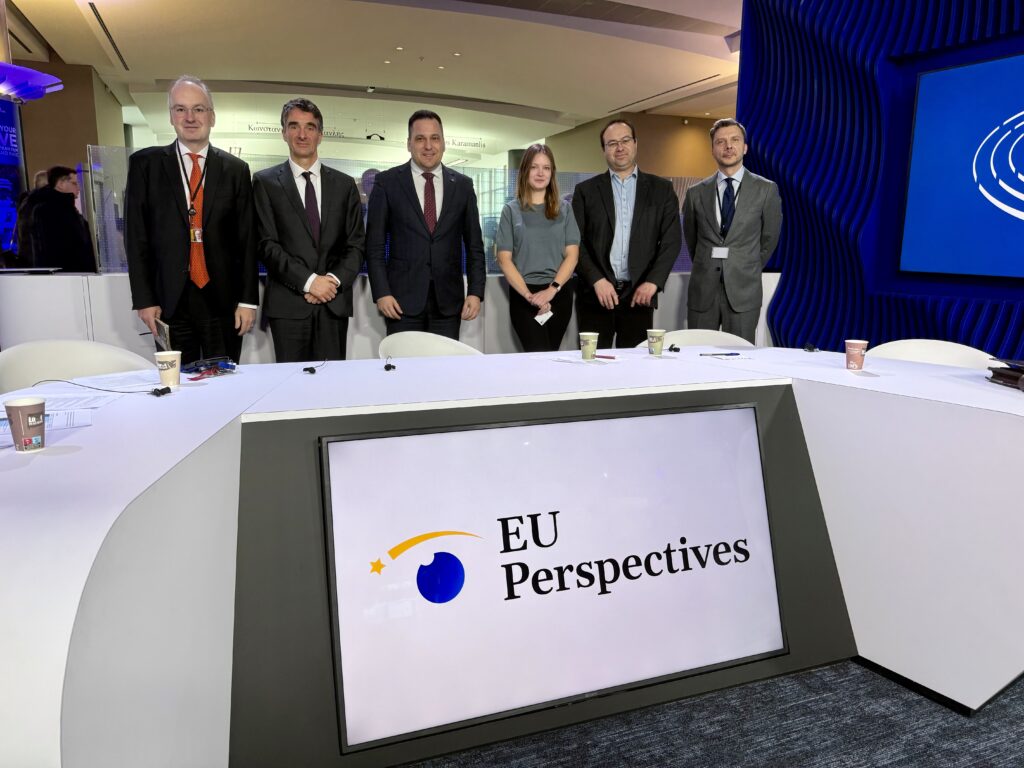
Remaining sceptical, Mr Darvas nevertheless saw some silver lining behind the cloud of his budgetary worries. “(Policy-centered funding) is a better, nicer way to ensure comparability across countries and the proper measurement of how much achievement we are actually getting out of the money,” he said.
However, other ideas of how to strengthen the EU’s budgetary capacities do exist, some of them for quite some time. One of them was floated by Tomáš Zdechovský MEP, himself a member of the Committee on Budgetary Control.
“Of course, when it comes to increasing the budget, we have an option to take money from banking operations. We will take a small amount from every banking transaction. These are things that have been discussed here for twenty years, and some of the member states are still boycotting them. I think this is only one possible way how to manage it if we will take ten cents from every transaction, because the member states simply will not pay more,” the MEP said.
